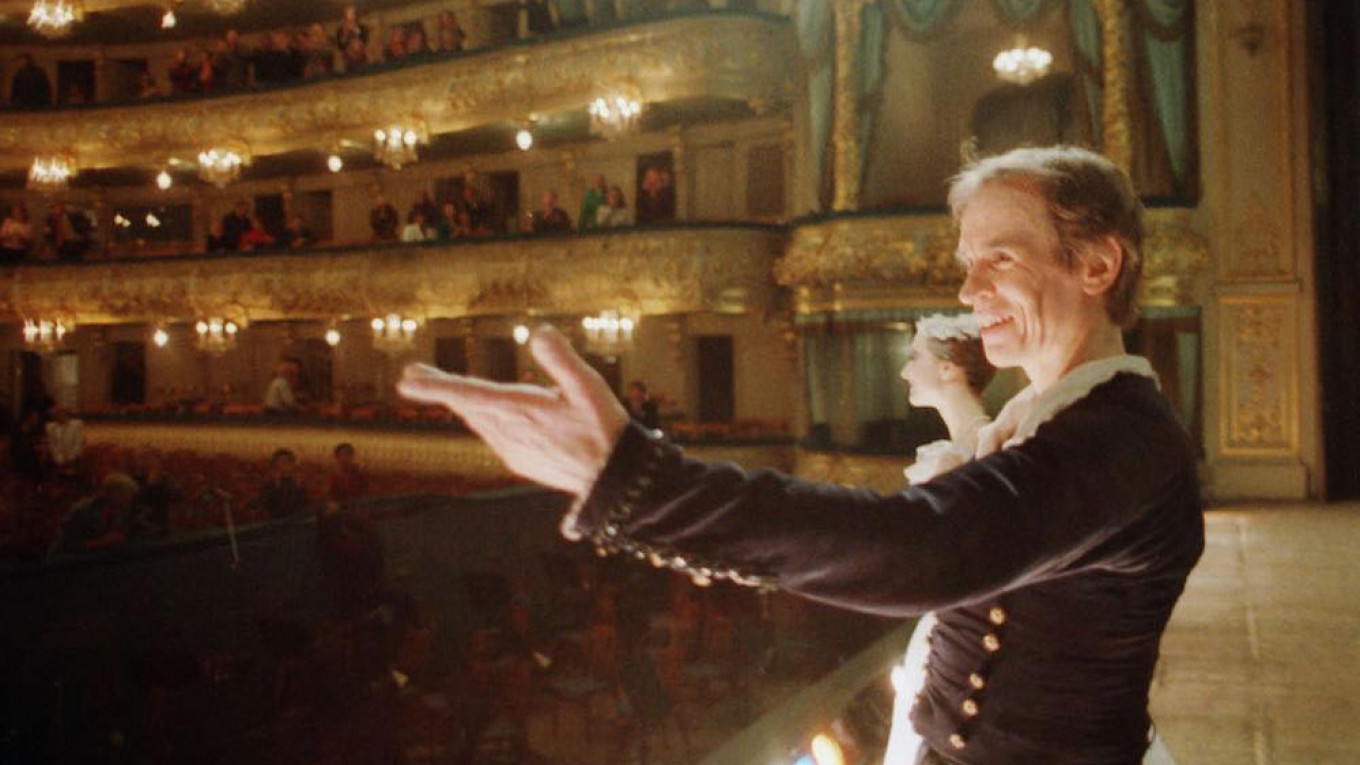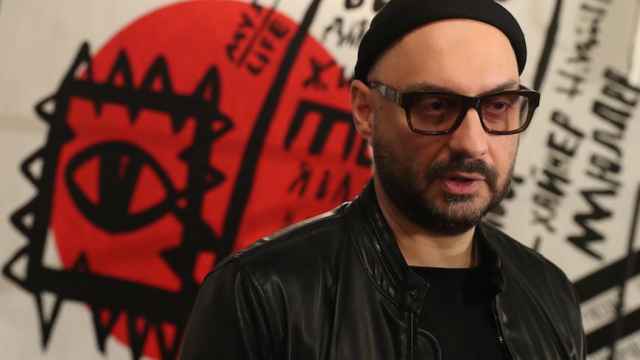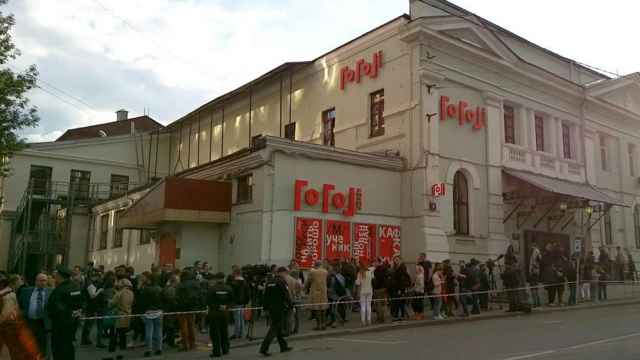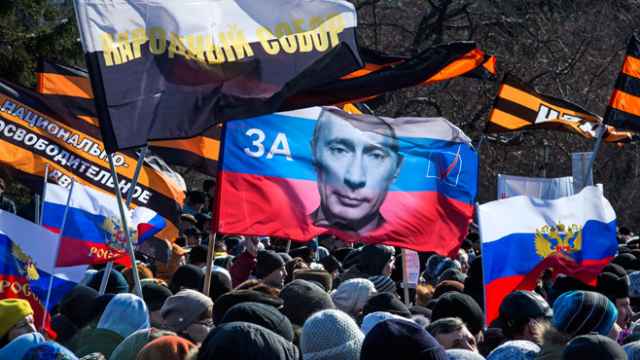Moscow’s Bolshoi Theater has unexpectedly postponed the premiere of a highly anticipated, but potentially controversial ballet, just days before it was scheduled to open on July 11.
The “Nureyev” ballet, based on the life of gay Russian dancer Rudolf Nureyev, has now been rescheduled for May 2018.
The ballet’s director Kirill Serebrennikov declined to comment on news of the postponed performance, telling Vedomosti, “This is the theater’s decision. And this is what they’ve decided.”
Serebrennikov was recently questioned as a witness by investigators over the embezzlement of government funds. Many consider the corruption investigation to be politically motivated.
“[The story of Nureyev] was the wrong topic, by the wrong guy at the wrong time," a source at the top of the Moscow ballet scene, who asked not to be named, told The Moscow Times. "Everything was against this performance.”
But the theater’s chief manager, Vladimir Urin, said the ballet was being pulled because it was “not ready.” He also dismissed rumors that rights to the performance could be sold to the tycoon Roman Abramovich, who had attended the final rehearsal.
“The [Bolshoi] theater will suffer reputational losses,” Urin said of the cancelation, “but no financial damage.”
Many in the cultural scene are unconvinced by the explanation.
"The ballet was postponed because Kirill Serebrennikov is a red flag that Russian cultural conservatives cannot abide," says culture critic John Freedman. "Urin's explanation is nonsense. He knows Serebrennikov well and Serebrennikov is a consummate pro. It's clear that pressure has been brought to bear."
It is unusual for a a prominent premiere to be postponed by such a long period of time, prominent theater critic Alexander Kolesnikov told The Moscow Times. "For a premiere to be postponed by a month happens but only very, very rarely," he said.
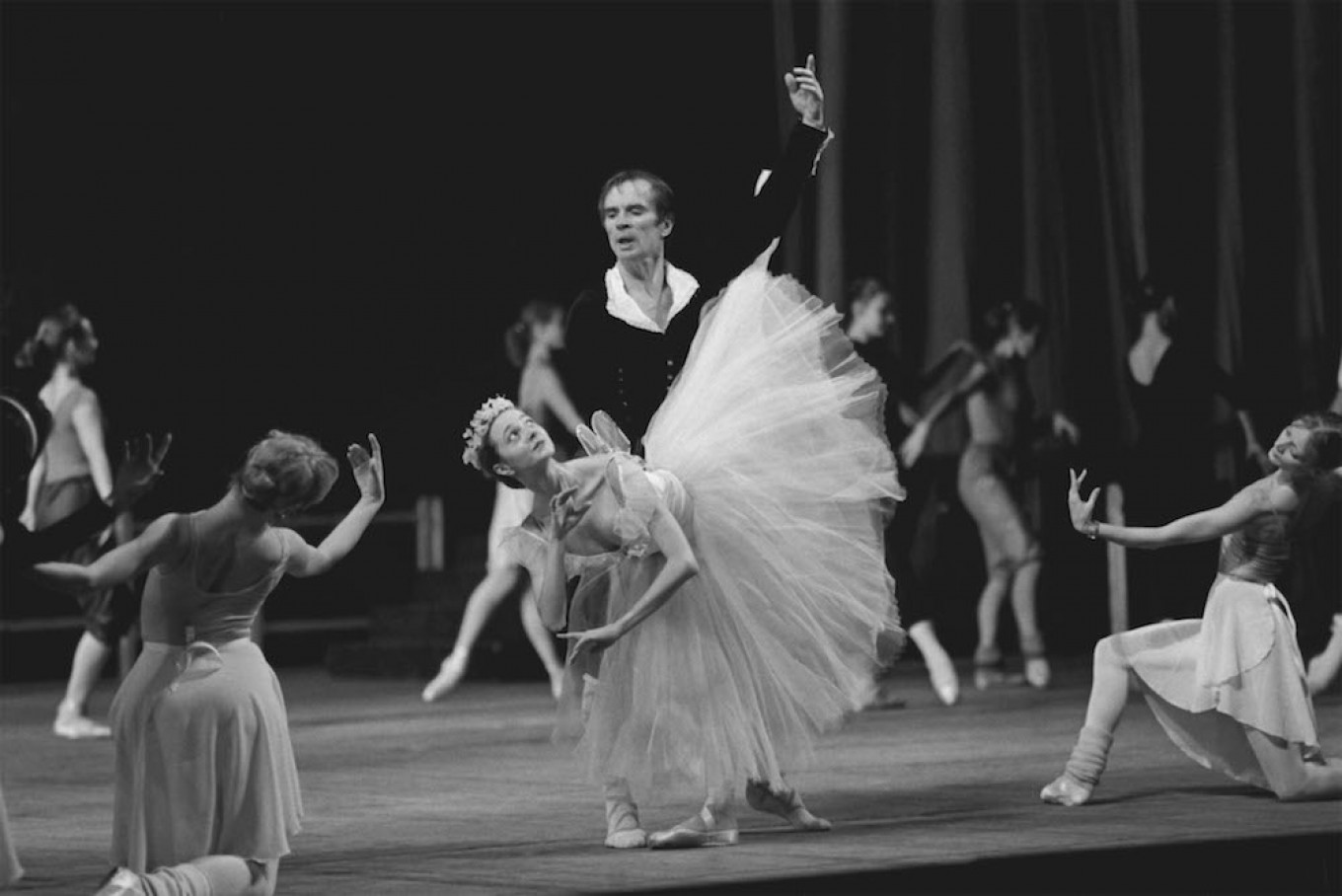
Unsurprisingly, therefore, it has set the rumor mill spinning.
State-run news agency TASS on Monday cited a source close to the Culture Ministry as saying that Minister Vladimir Medinsky had personally issued the order to postpone the ballet because it was seen to be in violation of the country’s laws against spreading “propaganda for non-traditional sexual relations” to minors. The news article was later edited to say the minister had merely "supported" the Bolshoi director's decision to cancel the performance.
In recent years, there have been several prominent cultural scandals. In 2015, an avant-garde production of Wagner's "Tannhauser" was canceled in Novosibirsk following an outcry by conservative activists. Medinsky, the culture minister, then fired the theater's director for "a failure to comply with instructions."
To many, the incident has since become a symbol of an encroachment on liberal values by Orthodox activists, led by the country's top culture officials.
"A culture war has been going on for several years now. It heats up, it cools down, but the skirmishes continue," Freedman told The Moscow Times. "Medinsky and his ilk are doing their best to push culture back to a past that never existed anywhere but in their prudish minds."
But Kolesnikov, the Russian theater critic, disagrees. "Medinsky has the right to speak out on this question, as a minister, as a citizen and as a man," he said. "Even if this conversation took place, I don't see anything extraordinary in it."
He considers the outrage among some in the cultural scene to be misplaced. "I know how difficult the rehearsals were going for this performance, and I assume that it was really not ready," he said.
A Message from The Moscow Times:
Dear readers,
We are facing unprecedented challenges. Russia's Prosecutor General's Office has designated The Moscow Times as an "undesirable" organization, criminalizing our work and putting our staff at risk of prosecution. This follows our earlier unjust labeling as a "foreign agent."
These actions are direct attempts to silence independent journalism in Russia. The authorities claim our work "discredits the decisions of the Russian leadership." We see things differently: we strive to provide accurate, unbiased reporting on Russia.
We, the journalists of The Moscow Times, refuse to be silenced. But to continue our work, we need your help.
Your support, no matter how small, makes a world of difference. If you can, please support us monthly starting from just $2. It's quick to set up, and every contribution makes a significant impact.
By supporting The Moscow Times, you're defending open, independent journalism in the face of repression. Thank you for standing with us.
Remind me later.


